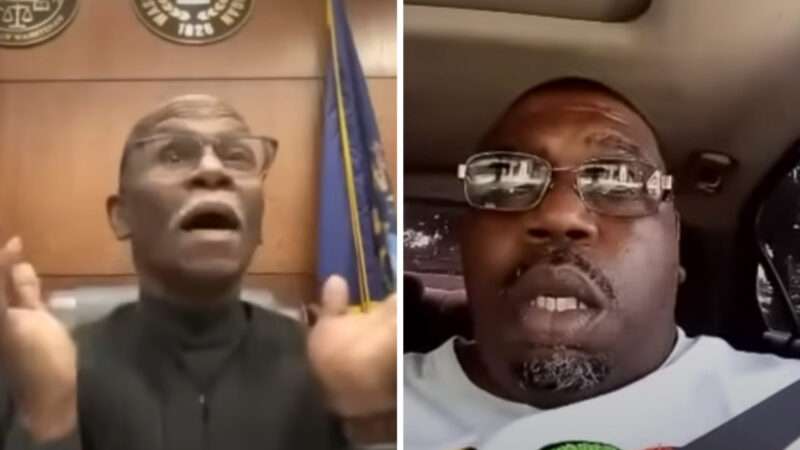
A Michigan man swept the internet last week after a viral video showed him attending a court hearing via Zoom after he appeared to park his car. That quickly became a national story.
Should it have been?
The footage, which first made the rounds on social media, showed Corey Harris calling into a hearing before Judge J. Cedric Simpson of the Washtenaw County District Court. "I'm looking at his record. He doesn't have a license," Simpson says about a minute into the hearing. "He's suspended and he's just driving….I don't even know why he would do that." Harris' bond was promptly revoked and he was ordered to turn himself in to the local jail.
Neither of those repercussions would have anywhere near the lasting impact that the forthcoming news cycle did, which was deemed a significant enough event to merit coverage in The New York Times, The Washington Post, Fox News, CNN, NBC, BBC, USA Today, and the New York Post, among other outlets.
It turns out all those stories, however, were based on a falsehood. Harris' license had been reinstated years prior and was only registering as suspended due to a clerical error. As of this writing, there has been no spate of additional articles, corrections, or a reinvigorated news cycle based around this information, because the truth here doesn't lend itself to virality and engagement.
That's a good indication that this never should have been a national story to begin with, which would be true even if Harris had been driving on a suspended license. A man in Michigan driving allegedly when he wasn't supposed to is not newsworthy enough to deserve coverage in the most influential outlets in the U.S. (and beyond). Good for a social media laugh? Sure. Justifying its own news cycle? No.
That idea may seem weird in a media landscape where social media virality has for several years been seen as a metric for measuring newsworthiness. What that means in practice, though, is that some of the largest publications in the world—across the political spectrum—routinely blow up small stories that are of no import to society, simply because they may be good for clicks and shares. But while those stories may offer little to no benefit to readers, they do have real impacts on the people at the center of them, like Harris, because the internet never dies.
That this was about engagement and not news is evidenced by the fact that all of the reporting above took the Zoom video at face value, which is not really reporting at all. The media did not dig into court records to verify Harris' story before cementing the narrative, which will forever be attached to his name, that he went to jail being the butt of a joke. It is also evident in that, with the exception of a handful of outlets, there is no urgent effort to correct that record.
"Twitter isn't real life" has been a cliche for years now. The name of the platform has changed, but the core of that maxim has not. Harris knows that all too well now, quite literally, as the story about him that took shape on social media—and was then trumpeted out in the press—was fiction. Most of the world will probably never know it.
The post The Viral Story About a Defendant Driving With a Suspended License Was Fake News appeared first on Reason.com.







